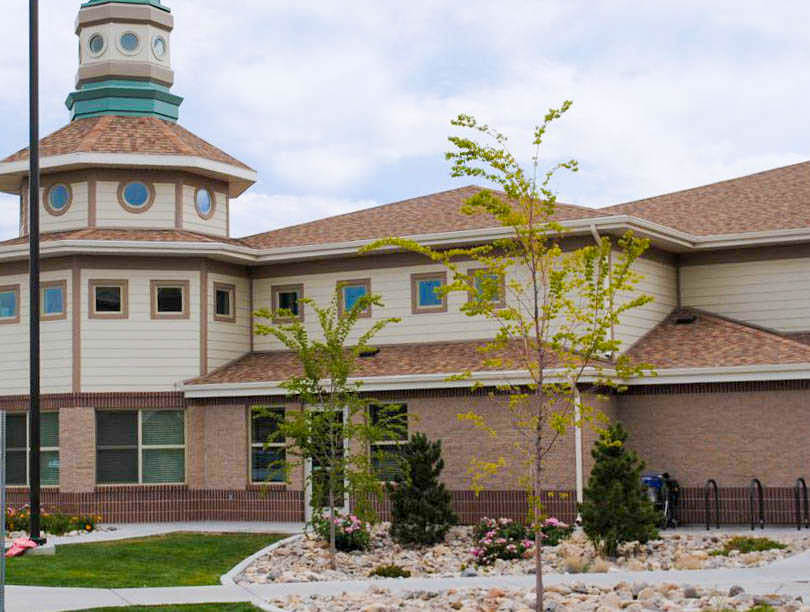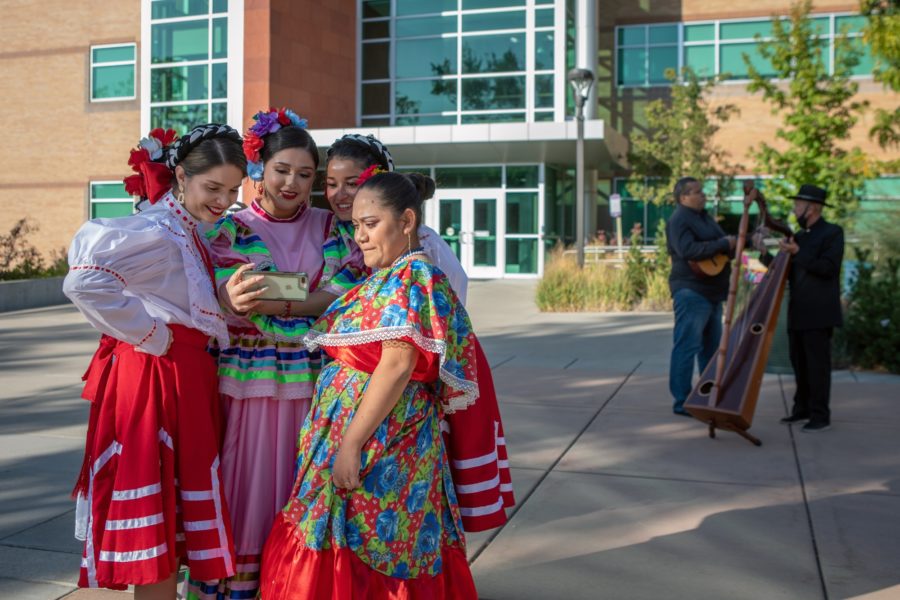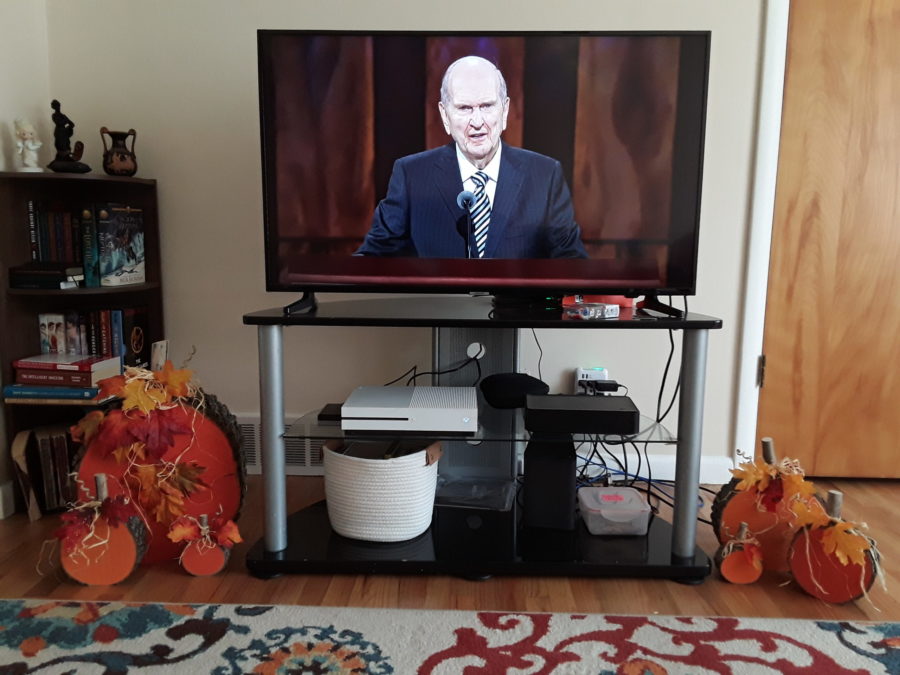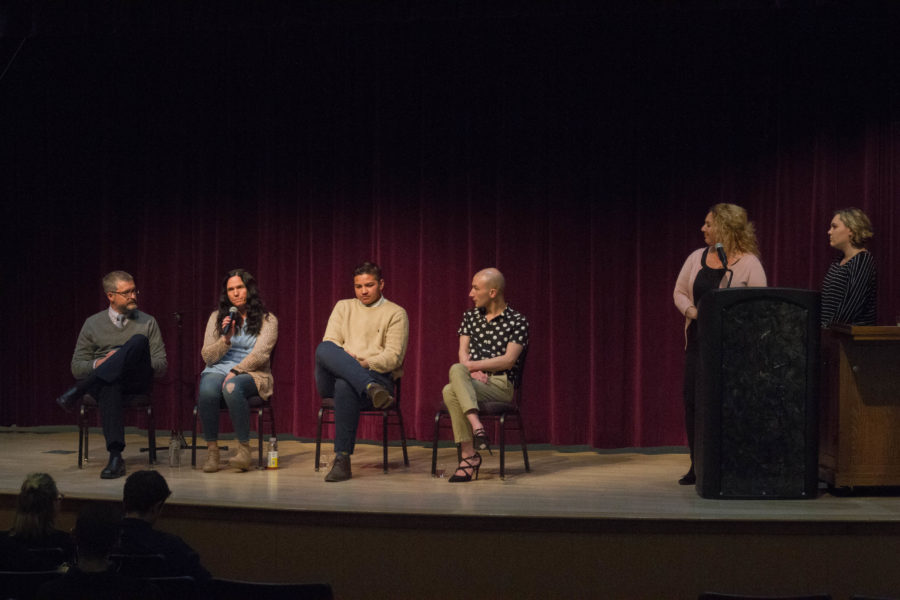
The Church of Jesus Christ of Latter-day Saints, colloquially known as the Mormon or LDS church, has always emphasized the importance of faith and prayer in overcoming life’s doubts and problems.
During the Second Great Awakening of the 1820s, a period of American religious revival, 14-year-old Joseph Smith, the LDS church’s first prophet and founder, claimed to have received the visitation of God the Father and Jesus Christ. This was in response to a prayer over his doubt about which church to join.
However, modern-day America may as well be in a different universe than the America of the Second Great Awakening. The number of religiously unaffiliated Americans is growing. The share of Americans who identify as Christian is shrinking.
Millennials, as defined as people born between 1981 and 1996, represent the largest portion of the American population to reject church membership or Christianity, according to the Pew Research Center, a nonpartisan organization focused on opinion polling and demographic research.
The data indicated that between 2009 and 2019, the percentage of Americans who identified as Mormon stayed steady at about 2%. However, America’s declining religiosity is taking its toll on the church, as Mormon young adults are caught between faith and doubt.
According to the church’s website, since Smith’s “First Vision,” the church has grown to a membership of over 16 million worldwide, thanks to zealous proselytizing efforts. Over 65,000 missionaries, many as young as 18 years old, work in 399 missions worldwide. They preach the news of modern-day prophets and apostles who claim to be following the literal leadership of Jesus.
Church missionaries and members encourage those who are investigating the church to pray to ask God about whether Joseph Smith was a prophet and whether the church is the “true” church.
Devout members will claim that God answered their prayers in a moment of spiritual transcendence. Members refer to this moment as “conversion,” or “being converted,” when all doubt is overcome by faith. The church has a tradition of having members share their conviction, or “testimony,” with others.
As is the custom of many religious traditions, church leadership expects church members to adhere to doctrines and a certain lifestyle.
The church’s teachings forbid the use of tobacco, alcohol and cannabis. Sex outside of marriage is second only to murder in terms of seriousness. Members should marry fellow members and have children. Church doctrine prohibits homosexual relationships of any kind. If members begin to question church history, doctrine or their faith, church leaders urge those members to doubt their doubts, not their faith.
Bobbi Bowman, a 32-year-old yoga instructor, tries to share her story of faith and doubt with as many people, especially youth, as possible. She hopes her example of overcoming her own personal difficulties through religious devotion will help others to do the same.
Bowman’s athleticism, infectious laugh and genuine friendliness draw people to her. She credits her faith for being the reason why she attracts so many people, both Mormon and non-Mormon to her friendship and yoga classes.
“When I was 18, I was so numb, I couldn’t feel anything, love or hate,” she said.
When Bowman encountered her cousin, who had recently returned from his time as a missionary for The Church of Jesus Christ of Latter-day Saints, she felt and saw what she described as tangible light and love emanating from her cousin’s persona.
“I was like, ‘What is it about this person?’ It woke me up to what love can do for people. I just hadn’t had a strong connection to God,” she said, her voice swelling with emotion.
Not long after that experience, Bowman prayed with the most sincerity she had ever expressed.
“I said, ‘Heavenly Father, I don’t know what I believe in, and I need to know,’” she said. “If this is true, I really need help comprehending this. I will do anything to know.”
Bowman said the answer to her prayer was an almost indescribable feeling of happiness and joy. She also began to voraciously read Scripture. For Bowman, the prayer and reading quenched her spiritual thirst.
Bowman said that in a world of Google, Netflix, Amazon and instant gratification, faith can be hard because the rest of the world demands results. She urged others to love and be patient with God and themselves.
However, the internet has played a key role in helping critics, and the curious, to thoroughly investigate the church’s claims and history. What was once the domain of street corner protesters and specialty literature is now readily available on Google, Twitter, Reddit and Wikipedia.
The “exmormon” subreddit, with over 161,000 subscribers and over 1,000 daily active users, is a forum for doubters and critics to discuss information and church history away from the church’s dogmatic lens.
Some of the historical critical approaches to the church involve its history of polygamy, lack of archaeological evidence for the Book of Mormon (the church’s companion to the Bible) and inconsistencies with Smith’s recounting of his various visions.
More recently, and perhaps more importantly to millennials, critics have found issues with the church’s views on homosexual relationships. Critics also focus on the church’s patriarchal structure, as Mormon women cannot be members of the organization’s lay priesthood. Another hot button issue is the perceived institutional racism in the church’s history. In general, black men were not allowed into the church’s lay priesthood until 1978.
Jocelyn Mossi, a 32-year-old former member of the church, believes the current online support community of former Mormons has made it easier for doubting members to educate themselves and leave the faith, if necessary.
Mossi had serious doubts about the faith since she was 14 years old.
Her parents were very devout and disciplinarian towards their children. For believing Mormons, the family unit is the most important vehicle for salvation, so parents teach their children adherence to the faith early.
According to Mossi, doubting or rebellious children are always the “troublemakers.”
However, she did not want to disappoint her family, friends or church leaders, so she observed church teachings and tried her best to have a conversion experience akin to Bowman’s.
The moment never came.
Instead, the pressure she felt from her family and church leaders to conform left her depressed and even suicidal. She has since completely severed her relationship with the church, but she wishes she had acted on her feelings earlier.
“I think with today’s online resources and support system, this younger generation has the courage to do what I could not,” Mossi said. “I allowed myself to be trapped in it for a long time.”
The church did not respond to inquiries regarding its official statistics on retention or defection rates for millennials. However, social media outlets such as Twitter and Reddit provide clues to the number of people who have requested that the Church remove their names from its records.
QuitMormon, an organization dedicated to helping disaffected Mormons leave the Church, tweeted in July 2019 they had helped over 33,000 people resign from the Church between 2016 and 2019.
Likewise, the “exmormon” subreddit contains several posts that claim that the actual number of defections is greater than available data. Many disaffected Mormons simply stop attending church without going through the formal resignation process.
Bowman has many friends, including a former bishop, who have left the Church. However, her faith remains unfazed.
“Even if gnarly things happen to me, I know my experience happened,” she said. “I think a lot of people leave because they feel isolated. But, if you have the Holy Ghost with you, you are never alone.”












